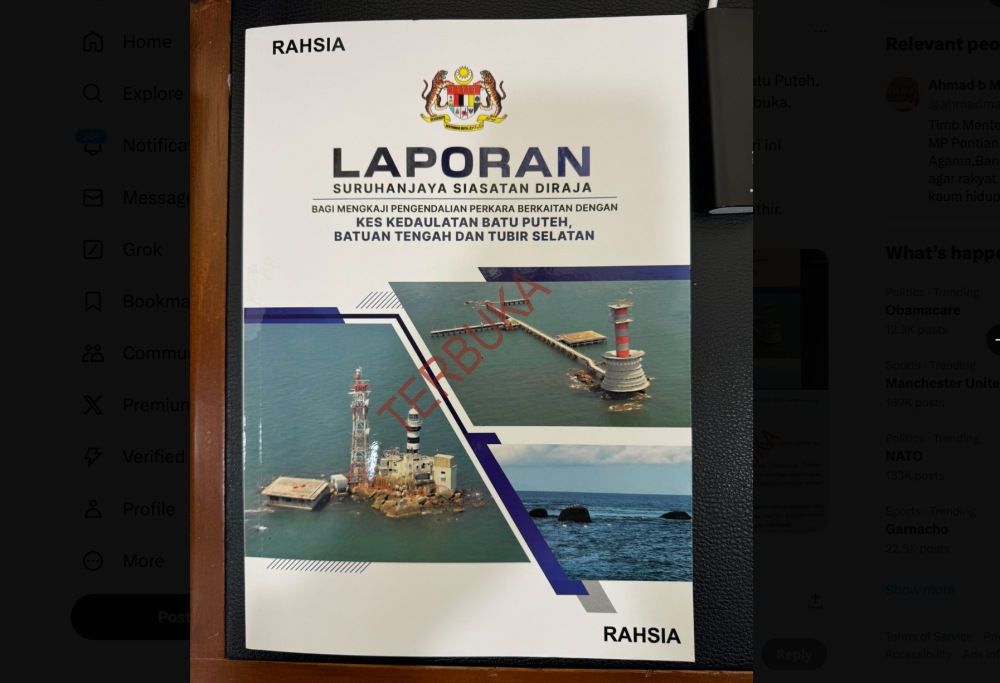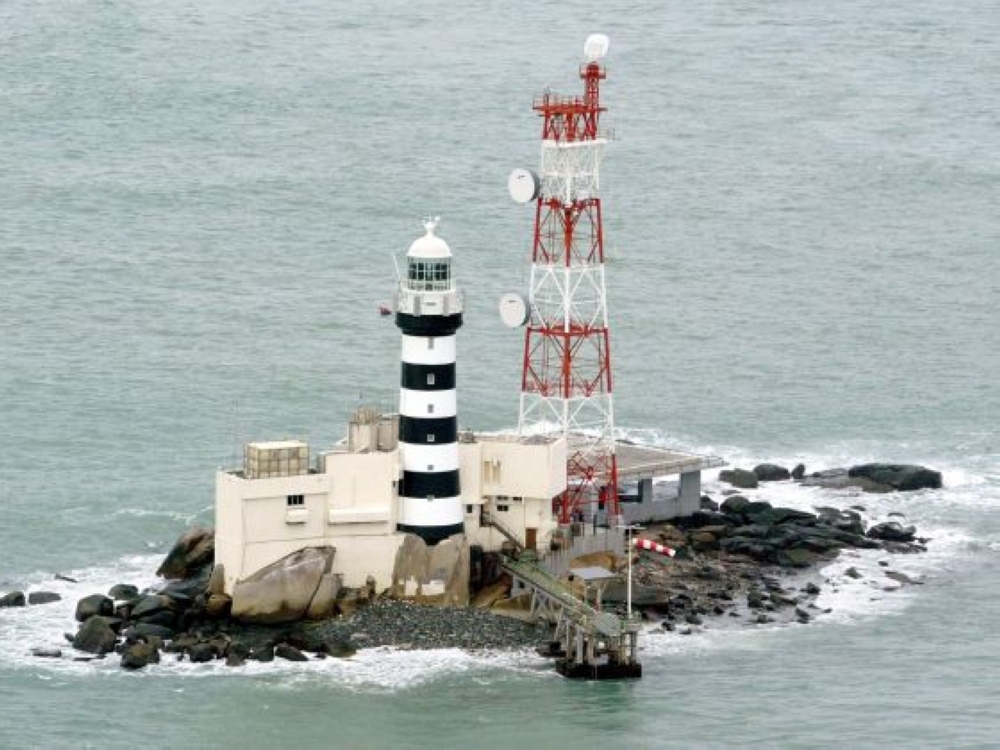KUALA LUMPUR, Dec 7 — The Royal Commission of Inquiry (RCI) on Batu Puteh, Middle Rocks and South Ledge found that the decision not to proceed with the revision application on the sovereignty of Batu Puteh at the International Court of Justice (ICJ), and the interpretation of the sovereignty of the South Ledge was “untenable,” among others.
The RCI, chaired by former chief justice Tun Md Raus Sharif, said that former prime minister Tun Dr Mahathir Mohamad’s actions had caused Malaysia to lose Batu Puteh permanently, with no avenue for appeal.
“The commission opined that Malaysia had an arguable case, not very weak as stated by Tun Dr Mahathir. Therefore, the action of not proceeding with the case at the last moment is very regrettable,” the commission said in the declassified report released two days ago.
The panel went on to propose a criminal investigation against Dr Mahathir for deceiving the government into surrendering Malaysia’s claim over the islands.
These are the key elements that led the panel to suggest lodging a police report against the former prime minister:

Dr Mahathir’s role in withdrawing the claim
Dr Mahathir said that he did not order the solicitor general at the time, Datuk Engku Nor Faizah Engku Atek, on May 21, 2018, to discontinue the legal action. Rather, it was merely his opinion that the government should not proceed, reflected in his choice of words.
Additionally, although Dr Mahathir only said the interpretation application should be discontinued in the letter, the RCI found basis for the SG to infer that Dr Mahathir referred to both applications to the ICJ — interpretation and revision.
The SG at the time was not called in for the RCI due to health reasons, and her testimony was received through a witness statutory declaration.
From this, it was found that the SG informed Singapore of Malaysia’s intention not to proceed with both applications based on the former prime minister’s letter dated May 21, 2018.
The RCI also discovered that, on May 23 that year, the High Commission of Singapore was informed of Dr Mahathir’s intentions at 9am, both of which were before the Cabinet meeting that week.
“The above-mentioned solicitor general’s letter does not state that the decision not to proceed with both applications was the decision of the Cabinet meeting as stated by Tun Dr Mahathir,” the RCI noted in its report.
The RCI also noted that while the Cabinet later endorsed the discontinuation, its members had not been supplied with legal opinions by the international consultants, the pleadings, the executive summary of the pleadings and other information during the meeting.
Former human resources minister M. Kulasegaran told the RCI that a memorandum had not been prepared for the Cabinet’s discussion on such a significant matter, as was conventional.
The RCI noted that Kulasegaran told Dr Mahathir about his discomfort with the decision after the meeting, but did not receive a reaction.
The RCI consequently concluded that the letter by Dr Mahathir on May 21, 2018, to the solicitor general was not his mere opinion but rather a decision.

No breach of special agreement with Singapore
The RCI said Dr Mahathir had conveyed to the Cabinet that Malaysia had a special agreement with Singapore not to appeal the case, and that its position was “very weak.”
The special agreement signed between Singapore and Malaysia denotes that neither party can appeal the ICJ’s decision, which was consistent with Article 60 of the ICJ statute.
However, a revision, which was previously pursued by the government, was completely different from an appeal and allowed in the ICJ statute.
“The Commission is of the opinion that Tun Dr Mahathir’s views in the Cabinet Meeting dated May 23, 2018, relying on the Special Agreement as a reason for not proceeding with both applications, were inaccurate and untenable.”
The RCI asserted the revision and interpretation application as a “continuing process” and did not breach the special agreement.
Legal experts did not advise for discontinuation
There were three newly discovered documents available that might make a difference in the ruling of Batu Puteh if a revision had been filed, the RCI said.
But the former PM asserted that both applications were too weak to convince the ICJ, based on his observations of the documents that were received by the Attorney General’s Chambers in 2018, and based on his discussions with legal consultant Brendan Plant.
In the report, Dr Mahathir said he had met with Plant prior to the briefing on May 17, 2018, which the latter has denied.
The RCI found that Plant said Malaysia had a plausible case and a credible basis for both the revision and interpretation application despite it being difficult to make.
“It is clear that Brendan Plant never stated that Malaysia had a very weak case in both applications. He also never stated that withdrawing both applications would have been a better option,” the RCI remarked.
The local consultants — Datuk Firoz Hussein Ahmad Jamaluddin and Datuk Abu Bakar As-Sidek Datuk Haji Mohd Sidek — said Malaysia had an arguable case.
Other international consultants — Professor Malcolm Shaw QC, Sir Daniel Lincoln Bethlehem QC and Plant — also did not say Malaysia had a very weak case.
Consequently, the commission found that Dr. Mahathir had communicated to the Cabinet his personal view when he claimed that the three new documents intended to support the revision application Batu Puteh were “very weak.”
“The Commission is of the opinion that if the three facts (new documents) were to be submitted by Malaysia in the review application were accepted by the ICJ, it could have broken the reasoning of the majority judges at the ICJ who ruled that sovereignty over Batu Puteh had passed to Singapore on the grounds that Singapore had continuously exercised control and enforcement actions (effectivités) from 1953 to 1980.
“Malaysia must accept and come to terms with such a decision even though the loss of Batu Puteh is difficult for Malaysia, especially the State of Johor. This is because Batu Puteh belonged to the Sultanate of Johor a long time ago,” the RCI said in its report.
The RCI’s final classified report was handed over to His Majesty the King of Malaysia Sultan Ibrahim by its chairman, on August 12 at Istana Negara.






















